-
-
PLAYS
-
|
A suggested reading-list for anyone interested in the Theatre
|
|
-
-
-
 |
|
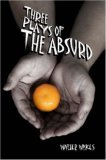  |
In this collection of plays, Walter Wykes creates a series of modern myths, tapping into something in the strata of the subconscious, through ritualism and rich, poetic language. The worlds he creates are brand new and hilarious, yet each contains an ancient horror we all know and cannot escape and have never been able to hang one definitive word on.
The Profession follows the experiences of a naïve young man exposed to the inner workings of a secret society of assassins. In Fading Joy a young woman finds herself caught up in the intoxicating world of a smooth-talking salesman. When he flees to escape a mysterious group known only as "The Tall Men," she finds it impossible to go back to her old way of life. Not only has she changed in some inexplicable way, but the landscape itself has taken on a strange and menacing new personality. Finally, The Father Clock tells the apocalyptic tale of two actors and a stage manager abandoned by their aging director. As the auditorium begins to fill and the lights dim, they desperately attempt to pull the show together even as a strange and disturbing illness drifts through the theatre.
|
|
|
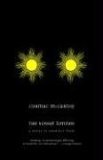  |
In this play by Cormac McCarthy, a startling encounter on a New York subway platform leads two strangers to a run-down tenement where a life or death decision must be made.
In that small apartment, “Black” and “White,” as the two men are known, begin a conversation that leads each back through his own history, mining the origins of two fundamentally opposing world views. White is a professor whose seemingly enviable existence of relative ease has left him nonetheless in despair. Black, an ex-con and ex-addict, is the more hopeful of the men–though he is just as desperate to convince White of the power of faith as White is desperate to deny it.
Their aim is no less than this: to discover the meaning of life.
Deft, spare, and full of artful tension, The Sunset Limited is a beautifully crafted, consistently thought-provoking, and deceptively intimate work by one of the most insightful writers of our time.
|
|
|
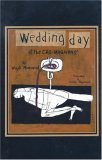  |
Wedding Day at the Cro-Magnons reflects playwright Wajdi Mouawad's upbringing in war-torn Lebanon. The play tells the story of a family which decides to go ahead with the marriage of their only daughter despite the bombs falling around them, despite the mother's unhappiness, despite the father's violence, despite the mental deficiency of the youngest son and the absence of the oldest son, and, above all, despite the fact the bridegroom doesn't exist.
Mouawad's work ponders the human experience in an unstable world and the power of individual choices to shape one's environment.
|
|
|
  |
Collected together for the first time are six astonishingly radical plays and ten short pieces from one of the most important playwrights to emerge from the aftermath of World War II.
An atmosphere of dream and nightmare pervades the plays of Tadeusz Rozewicz. Characters are confronted with the consequences of their own inaction. They are surrounded by the physical manifestations of their emotional wastelands. In The Card Index the fractured hero is simultaneously a child, a middle-aged man and a corpse. In The Witnesses a young boy is observed by a married couple who exchange banalities as the boy tortures a kitten and finally buries it alive. In Gone Out a wife insists that her amnesiac husband must be made to remember the misery of his old life despite his new-found happiness. Rozewicz draws his dramatic vision from "the detritus that constitutes modern consciousness," yet manages to find reason for humour and hope among the debris.
|
|
|
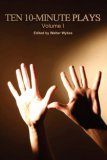  |
10-minute plays are no longer a fad. They are a legitimate form of theatre that has proven highly popular with audiences around the world. And is it really any wonder? The concise form forces playwrights to get the story moving quickly and keep dramatic action tight, it encourages actors to develop and showcase their talents by playing multiple roles, and it allows audiences to enjoy a broad spectrum of theatre in one sitting. It's like a theatre buffet.
This collection of 10-minute plays will delight readers and audiences alike. From the social drama of Jeanette D. Farr's Gray Matter to the Pinteresque tension of Walter Wykes' The Salmon Tribunal to the zany swashbuckling fun of Jeff Goode's Jolly Jack Junior: The Buccaneer's Bairn, each of these short plays expresses the unique vision of an emerging contemporary dramatist. Together, they make an exciting and diverse evening of theatre.
Other plays in this anthology include Nick Zagone's The DMV One, LB Hamilton's A Midnight Clear, Greg Vovos' Bloody Mary, Julianne Homokay's The Wedding Story, Douglas Hill's Heresy at a Crossroads, Brian E. Rochlin's Carmen Dick: Feminist Private Eye, and Eric Kaiser's The Weed Dreams.
|
|
|
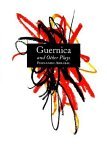  |
This collection of plays by celebrated Spanish dramatist Fernando Arrabal portrays the inherent sadness in all human beings, yet projects a childlike wonderment at the absurdity of modern society, especially war. Arrabal's world derives its absurdity not from the despair of the philosopher trying to probe the secrets of being but from the fact that his characters see the human situation with uncomprehending eyes of childlike simplicity. It vividly depicts human atrocity, but also hope.
Included are And They Put Handcuffs on the Flowers, The Architect and the Emperor of Assyria, Garden of Delights, Guernica, The Labyrinth, Picnic on the Battleground, and The Tricycle.
|
|
|
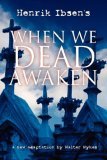  |
According to one of Ibsen's contemporaries, When We Dead Awaken was written "with such labour and such passionate agitation, so spasmodically and so feverishly, that those around him were almost alarmed ... He seemed to hear the beating of dark pinions over his head." If the great dramatist did indeed have a premonition of his impending death, this play, subtitled "a dramatic epilogue," may be regarded as a sort of last confession, Ibsen's final communication to the world at large.
A harbinger of the symbolist movement in Europe, When We Dead Awaken is an unforgiving account of the last days of a world-renowned artist, not unlike Henrik Ibsen himself. Rubek, an aging sculptor, has lost all interest in the world around him. In spite of his wealth, his fame, and the attentions of his beautiful, young wife, he can find no joy in his existence. He has lost interest even in his work, sculpting nothing but occasional portrait busts for wealthy aristocrats whom he despises. He is stagnating, like the murky, shallow waters he travels with his wife, trapped in a spiritual vacuum, when suddenly he is jolted out of his stupor by an unexpected reunion with Irene, a model who once posed for him and whom he idolized. She is now half-mad--or appears to be so--and literally believes herself to be a walking corpse, a dead woman who roams the earth, who has returned from "the great dead waste." In spite of her delusions, however, and in spite of his marriage, Rubek attempts to rekindle the relationship. Irene eventually agrees to allow Rubek a few moments of real happiness. She will spend one final night with him ... but there is a terrible price to be paid.
|
|
|
  |
Venus, by Suzan-Lori Parks, is based on the historically true tale of a black woman whose "horror and fascination" derived from a large (probably not all that large) posterior. To make this woman the heroine of a serious tragedy is daring, dangerous–here is a play which treads the line between pathos and absurdity, which is very hard to do.
Venus also treads the fault lines of several American cultural sensitivities, moving racial clichés and stereotypes out of the unlit mutterers' corners and back to center stage, where the sight of them makes us wince. Venus expresses both a global empathy, a mourning for all of suffering humanity, and at the same time an anger at oppression and oppressors, an indictment of wrongs yet to be righted. The play places human paradoxes of love and loathing, attraction and revulsion, pleasure and denial in a historical context of racism, sexism, exploitation, voyeurism and colonialism. By contextualizing these paradoxes the play places the historical in dialogue with the eternal–acknowledging the tragic, the immutable, while not extinguishing the possibility of mutation, of change.
|
|
|
  |
When Fuddy Meers opened at the Manhattan Theatre Club in the fall of 1999, it earned the kind of raves that a promising young playwright only dreams about. Writing in the New York Observer, John Heilpern called David Lindsay-Abaire "some kind of comic genius."
The play revolves around an amnesiac, Claire, who wakes up every morning as a blank slate, on which her family must imprint the facts of her life. On this particular day, the shenanigans begin with Claire being abducted by a limping, lisping man who claims that her husband wants to kill her. They drive to the home of Claire's mother, who has had a stroke that left her aphasic (her attempt to say funny mirrors provides the play's title). The ensuing mayhem is both liberatingly funny and deeply touching.
|
|
|
  |
Like Sam Shepard–the American playwright whose career his most nearly resembles–Franz Xaver Kroetz is a controversial figure whose plays have helped reshape world drama. His unsparing portraits of life in Germany's lower middle-class redefine the notion of realism on the stage.
This collection of plays includes Through the Leaves, about a female butcher and her laborer lover; The Nest, about a worker who inadvertently poisons a lake and, consequently, injures his infant son; and Mensch Meier, about a jittery, imaginative Munich assembly-line worker, his vague, housebound wife and their silently observant teenage son. Kroetz's characters are so rigidly confined by circumstance, by character, by the very language they speak, that violence seems the only natural outcome.
|
|
|
  |
This play by Werner Schwab, one of Austria's most famous playwrights, is an intimate study of the loneliness felt by three middle-aged women who failed to find fulfillment as mothers and as lovers. The one male figure remaining in their lives is the Pope, speaking to them via a newly purchased television set.
Schwab's first play Die Präsidentinnen was produced at the Theater im Künstlerhaus in Vienna in 1990. Between that time and his death four years later, he wrote sixteen plays, eight of which were produced during his lifetime, making his career one of the briefest, most spectacular and most controversial in contemporary German-language theatre.
|
-
- 10-Minute Plays - An online collection of ten-minute plays by various authors.
- One-act Plays - An online collection of one-act plays by various authors.
- Full-length plays - An online collection of full-length plays by various authors.
-
|
|